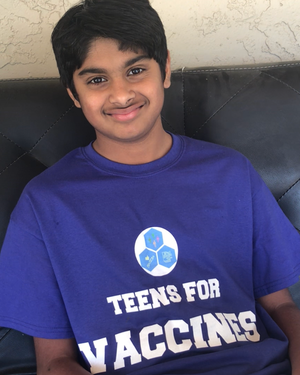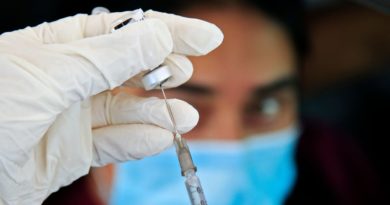Parental consent needed to get COVID-19 shot? Here’s how some teens are approaching their anti-vaccine families.
Ethan Lindenberger grew up hearing vaccinations were dangerous but he didn’t know why. It wasn’t until he was 16 and researching that he realized he might not see eye-to-eye with his mother anymore.
“I got on the internet and realized there were thousands of people who disagreed with my mom,” Lindenberger, now 20, told USA TODAY. “Then I realized I needed to get vaccinated. I needed to do it not just for my community but for everyone’s safety.”
After his Reddit post seeking advice on how to vaccinated went viral two years ago, Lindenberger is now urging other teens to get the COVID-19 vaccine.
Lindenberger, who received the Pfizer COVID-19 vaccine, said if someone is 18 or older they should “just do it” regardless of their parent’s opinion. However, for teens in states where parental consent is needed to get vaccinated, Lindenberger said it’s more difficult.
“If you’re like me, at 16 and knowing your parent is against vaccines, I’d just educate yourself and your parent on why it’s important for you,” Lindenberger said. “Talking is that first, best step.”
Parental consent is needed in most states except North Carolina, where all teenagers can receive vaccinations, in Tennessee and Alabama where those 14 and older don’t need consent, and in Oregon where parental permission isn’t required for those 15 and older. The rules are murkier in Iowa, where the outcome depends on your health care provider.
Back to school shots:‘I feel safer’ after school vaccination, says teen
Popular among America’s youth:Teens out in droves for coronavirus vaccinations
While public health experts emphasize the importance of teens getting vaccinated, they also acknowledge the obstacles they may face.
Georges Benjamin, executive director of the American Public Health Association, told USA TODAY that from ages 12 to 18, it can be a “tough time” communicating with parents. Benjamin recommended teens approach the vaccination topic as any other conversation. Instead of approaching a parent during a stressful time or during work, do it at the dinner table or while on a walk.
Despite the varying age of consent, some teens are advocating for the COVID-19 and general vaccines.
Arin Parsa, founder of Teens for Vaccines, a group dedicated to reporting misinformation and advocating for vaccinations, is only 13 but said he knows vaccines save lives. After seeing some teens unable to obtain consent for vaccinations, Parsa told USA TODAY that he started the group to give teens a voice and platform.

Rue Soto said at the start of the COVID-19 pandemic, her parents were against vaccines. Soto, who turned 18 last month, said she spent months and months social distancing and then in virtual school. Eventually, she grew “exhausted” and wanted to receive the COVID-19 vaccine as a way back to normalcy.
“In January when everyone was discussing the vaccines and were excited, me and my parents were fighting over it. They thought it could kill me while I thought it could save people’s lives,” Soto told USA TODAY.
Here’s what we know:CDC says it’s investigating cases of heart inflammation in teens, young adults who got the COVID vaccine.
It wasn’t until Soto presented her parents with pages of information on the Moderna vaccine that they started “coming around.” Soto said she continuously asked her parents to listen to why she wanted to be vaccinated until she convinced them it was the right step for the family.
“I truly just talked and talked until they realized getting vaccinated was best, not just for me, but for the family,” Soto said.
Benjamin and Jill Roberts, associate professor at the University of South Florida’s College of Public Health, agreed that teens should educate themselves on the science and importance of vaccinations before confronting their family.
“It’s important for the teen to show their parents the vaccine is more than just getting back to normal. Explain its importance and how it helps others. Show them the facts, and maybe then they’ll pay attention,” Benjamin said.
If a parent refuses to listen or is strictly against vaccinations, Roberts advises teens to pull their pediatrician into the conversation. The doctor can act as an intermediary and provide information to both the parent and teen on the topic, Roberts told USA TODAY. She also emphasized that peer advocacy would be ideal, if parents see other families opening up to vaccinations, they may also feel inclined to.
Benjamin said he’s heard dozens of cases where a teen will want to get vaccinated but one or two parents refuse. However, he said in some scenarios the teens’ wishes are “impossible” until they are of age.
“It’s hard, these teens are young and don’t have much legal say, but they can open up the doors for communication and understanding with their parents.”
Follow Gabriela Miranda on Twitter: @itsgabbymiranda

